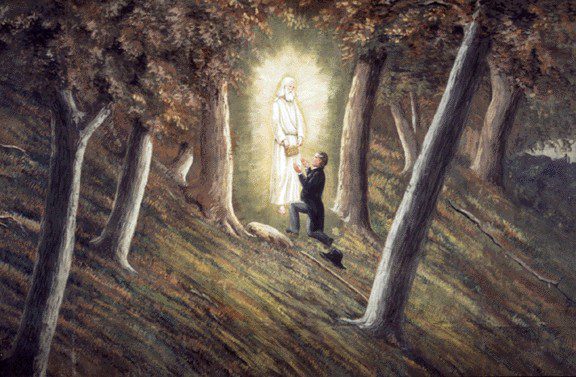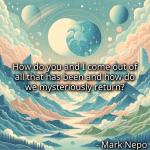
Recently, I have begun to read The Book of Mormon: Another Testament of Jesus Christ from the beginning again. As always, I continue to be impressed with the work, as well as continuing to gain new insights into the work itself. One thing is for sure: Joseph Smith, Jr. could not have produced such a work. It is my testimony that this book is a book preserved by God himself for our day.
However, in this post I do not want to give my testimony as much as I want to point out two logical fallacies, one committed by non-members of the Church of Jesus Christ of Latter-day Saints, the other by active believing members.
The first fallacy, committed by non-members, is this “Because the Book of Mormon does not contain all the doctrines of the Church of Jesus Christ of Latter-day Saints, it cannot be stated to contain the fulness of the gospel.” Here non-members commit the logical fallacy of a false dichotomy; meaning that they reduce the Book of Mormon down to two choices when there may be more options available.
The problem here is that the non-believer is reading into the Book of Mormon what the book does not say about itself. The purpose of the book, according to its cover page, is “Which is to show unto the remnant of the house of Israel what great things the Lord hath done for their fathers; and that they may know the covenants of the Lord, that they are not cast off forever—And also to the convincing of the Jew and Gentile that Jesus is the Christ, the Eternal God, manifesting himself unto all nations” (Book of Mormon Title Page).
Notice here that the Book of Mormon has 3 purposes: 1. To show the remnant of the House of Israel that the Lord blessed their ancestors 2. For the remnant (as well as others) to remember the covenants the Lord has made with his people 3. Convincing all people that Jesus of Nazareth is the Messiah and the God of this world. Among the reasons listed is not to tell all people what all the correct ordinances or teachings of the gospel are. To say that the Book of Mormon cannot be true because it does not contain all doctrines, ordinances, and covenants of the gospel of Jesus Christ is similar to saying that Darwinian evolution cannot be true because it does not teach us the origin of the universe. Darwinian evolution does not claim to teach the origin of the universe, and the Book of Mormon does not claim to teach all the doctrines of the gospel.
The second fallacy I wish to address is committed my members and missionaries every day. The argument goes like this: If the Book of Mormon is true, then Joseph Smith is a prophet. Here members are committing the fallacy known as “begging the question”, a fallacy committed by assuming that because the premise is true that the conclusion must also be true. This argument also commits the false dichotomy fallacy by giving us two options.
Nowhere in the text of the Book of Mormon does it say that the person who brings the book forward would be a prophet. It merely says that the person who brings it forward would be blessed (Mormon 8:16). So, the Book of Mormon could be true and Joseph Smith could be a false prophet. In order for a person to know whether Joseph Smith is a prophet, they will need to read his teachings and ask God about them (Moroni 4-5). Praying about the truthfulness of the Book of Mormon would give a person a confirmation only that the words contained within the text are true.
I hope that as members and non-members read the Book of Mormon they will root their understanding of it in the text itself and not write their own metatext into the text. Doing so may cause us to lose sight of what the book and God want to teach us.











